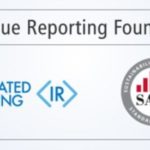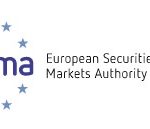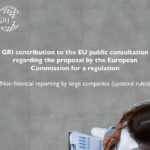
Janine Guillot (CEO of the SASB Foundation) states that the EU Non-Financial Reporting Directive (NFRD) can lay the foundation for a Global ESG Disclosure Solution.
Companies around the world are increasingly reporting on their sustainability performance. However, we still hear from investors that they struggle to find comparable information that is relevant for investment decision making. And we often hear from companies that they struggle to understand what information to report to what audience for what purpose. This week, the European Union wraps up a public consultation aimed at addressing these challenges. Although the consultation is one piece of the EU’s regulatory and policy agenda regarding sustainable finance, it could lead to a giant leap forward for companies, investors, and civil society in the realm of environmental, social, and governance (ESG) disclosure.
The European Commission initiated the consultation in February to collect the views of stakeholders regarding possible revisions to Directive 2014/95/EU—more commonly called the non-financial reporting directive (NFRD). The Sustainability Accounting Standards Board (SASB) strongly supports a revision of the NFRD. We have summarized our reasoning in a brief paper, which we submitted to the Commission along with our official consultation survey responses.
In short, SASB believes a revised NFRD could lead to a globally accepted system of standards for non-financial disclosure by building upon the work of organizations around the world, including SASB, the Climate Disclosure Standards Board (CDSB), the Global Reporting Initiative (GRI), the International Integrated Reporting Council (IIRC), and the Task Force on Climate-related Financial Disclosures (TCFD).
SASB believes that the EU could leverage these existing standards and frameworks as “building blocks” to establish a system of non-financial disclosure that addresses a variety of critical needs. For example, such a system must be comprehensive enough to meet the unique information demands of a range of key constituencies, including investors, policy makers, and civil society. Also, it must be flexible enough to provide international consistency while allowing for regionally tailored approaches. We discuss these and other challenges in the paper.
We also believe the EU’s “double materiality” concept is key to achieving the objectives of the NFRD. This perspective helpfully recognizes that ESG information is of interest to a much broader array of stakeholders than traditional financial reporting. It acknowledges that there are two lenses through which to view environmental and social issues: how these issues impact a company’s financial performance and long-term enterprise value, and how a company’s actions on these issues impact society. The SASB and GRI standards could provide a foundational layer of relevant, comparable, reliable non-financial information across the entire “double materiality” continuum.
The revised NFRD could help establish the market mechanism necessary to scale up sustainable finance in Europe and beyond, fueling a 21st century global economy that will support shared prosperity and sustainable economic growth. SASB appreciates the Commission’s leadership role in addressing this global challenge.



